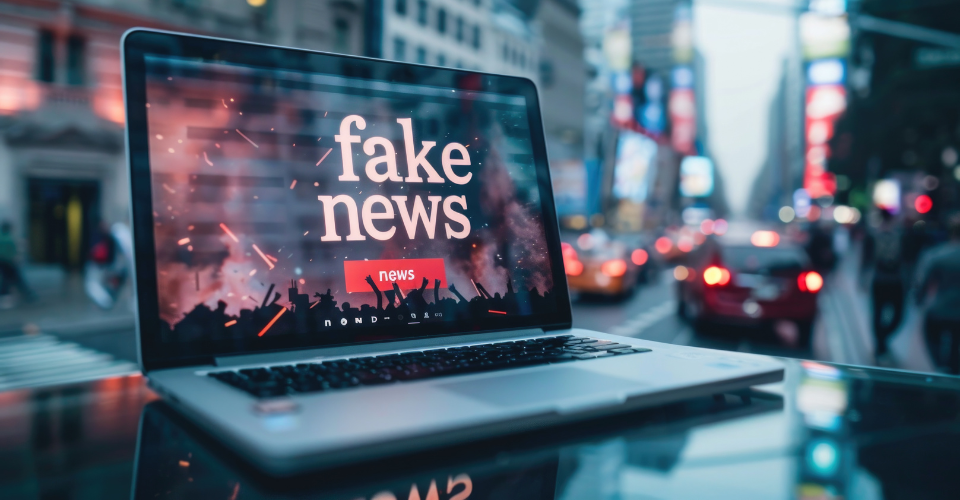Misinformation Sharing: First-Ever Research on Personality Traits
A recent publication in the online academic journal PLOS ONE has highlighted the connection between personality traits and sharing false political information through social media. The study reveals that positive schizotypy, a set of traits characterized by paranoia, suspicion and disrupted thinking patterns, can lead individuals to unwittingly or intentionally disseminate false information.
Virus of Misinformation
There is an abundance of misinformation and disinformation on the Internet which are responsible for many severe impacts such as political unrest, erosion of trust in authentic news sources, and spreading malicious conspiracy theories. This research aimed at exposing the personality profiles and motivations for spreading falsehoods that can be used to develop effective policies against it.
Understanding Individual Differences
Previous studies have suggested that personal attributes such as cognitive styles could apply to sharing incorrect facts; however there was no agreement on key personal characteristics. Similarly motivation for sharing false information has not been covered adequately. The researchers take account of personality traits (negative schizotypy) as well as reasons why people share information to build a comprehensive model explaining why some individuals are more likely than others to share wrong stories around.
Examine 1: Factors Predicting False Information Sharing
In their first study, the researchers conducted a preregistered cross-sectional online survey with an aim of examining individual differences related to misinformation sharing both unintentionally and deliberately. At first stage there were 670 respondents but later this number reduced to 614 due incomplete surveys and data falsification.
Participants also provided demographic details including age, gender, education level, country or residence or origin, occupational status and political views among others while frequencies in use of social media platforms; trusted resources from within these sites; extent to which one shares these pieces were determined too. Consequently, they tried to establish how much participants accidentally shared inaccurate information in general and in particular.
Highlights of Findings from Study 1
According to the results, cognitive perceptual schizotypy was found to be significantly related to accidental sharing of false information. People with higher levels of schizotypy were more likely to say they had inadvertently shared inaccurate news. Moreover, a general tendency of sharing political information on social media was related to accidental sharing.
Examine 2: The Role Of Motivation
The second study followed up the findings in Study 1 by including motivational variables in the prediction of false information sharing. For this reason, a cross-sectional online survey design was used again. Finally, we had a sample size of 562 residents from America that consisted equally fifty percent Democrats and Republicans.
Participants completed similar background and social media measures as in Study 1. An extra section included questions about reasons for posting political content on social media platforms that were covered under six subjected areas each containing three questions; these are Prosocial Activism, Attack or Manipulation of Others, Entertainment, Awareness, Political Self-expression and Fighting False Information.
Motivational Influences on Sharing Behavior
The researchers discovered motivations had significant effects on the disposition towards misinformation spreading. By way illustrative example where several respondents’ answered affirmatively as shown by items such as I like attacking people through my tweets (α = .87). More motives towards attacks will mean more intentions behind defiance with regard to providing true facts. It is highly likely that someone may find humor so irresistible that they share stories even when they are aware they are not true later on after reading such materials aloud. Motivation for raising awareness also turned out to be important.
Study 3: Scenario-Based Assessment
Self-reporting on the past actions of people was replaced by a method where scenarios were used in assessing participants’ odds of sharing false information. The study involved Prolific users who voted for Donald Trump in the 2020 U.S. presidential election. Ultimately, a sample size of 627 participants was identified.
Participants rated their likelihood to share ten political stories (five true and five false). It was discovered that high positive schizotypy scores corresponded to an increased chance of sharing fake stories. Other motivations included raising awareness, and entertainment purposes as well.
Study 4: Real-World Twitter Analysis
The fourth study aimed at determining real-world activities through the examination of participant’s twitter use pattern. Out of 2,999 respondents who claimed to have shared such materials on social media platforms and had public twitter accounts, only 134 participated further in the study while 113 of them managed to provide usable data.
The same measures were administered as in the previous studies where one hundred most recent retweets and quote-tweets on Twitter were analyzed and coded for whether they contained any false political information or not. The findings revealed that individuals who scored high on magical thinking subscale tended to share more misleading stories.
Conclusions and Future Research
“Evidence from our four studies suggests that positive schizotypy is linked with indicators which tend to indicate propagating misinformation,” write the researchers. They also stressed motivation as an issue especially desiring attacking or manipulating others or raising awareness.
The paper, “Individual differences in sharing false political information on social media: Deliberate and accidental sharing, motivations and positive schizotypy,” was co-authored by Tom Buchanan, Rotem Perach, Deborah Husbands, Amber F. Tout, Ekaterina Kostyuk, James Kempley and Laura Joyner. This implies that motivation and positive schizotypy are worth exploring further in future misinformation studies.





























Leave a Reply
You must be logged in to post a comment.